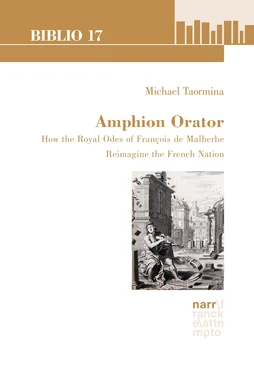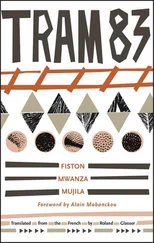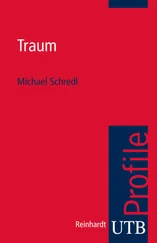Michael Taormina - Amphion Orator
Здесь есть возможность читать онлайн «Michael Taormina - Amphion Orator» — ознакомительный отрывок электронной книги совершенно бесплатно, а после прочтения отрывка купить полную версию. В некоторых случаях можно слушать аудио, скачать через торрент в формате fb2 и присутствует краткое содержание. Жанр: unrecognised, на английском языке. Описание произведения, (предисловие) а так же отзывы посетителей доступны на портале библиотеки ЛибКат.
- Название:Amphion Orator
- Автор:
- Жанр:
- Год:неизвестен
- ISBN:нет данных
- Рейтинг книги:4 / 5. Голосов: 1
-
Избранное:Добавить в избранное
- Отзывы:
-
Ваша оценка:
- 80
- 1
- 2
- 3
- 4
- 5
Amphion Orator: краткое содержание, описание и аннотация
Предлагаем к чтению аннотацию, описание, краткое содержание или предисловие (зависит от того, что написал сам автор книги «Amphion Orator»). Если вы не нашли необходимую информацию о книге — напишите в комментариях, мы постараемся отыскать её.
Amphion Orator — читать онлайн ознакомительный отрывок
Ниже представлен текст книги, разбитый по страницам. Система сохранения места последней прочитанной страницы, позволяет с удобством читать онлайн бесплатно книгу «Amphion Orator», без необходимости каждый раз заново искать на чём Вы остановились. Поставьте закладку, и сможете в любой момент перейти на страницу, на которой закончили чтение.
Интервал:
Закладка:
But the odes do not just point to magnanimitymagnanimity and the other virtuevirtues. They also illustrate them, exemplifying what they assert. The odes assume, as does AristotleAristotle, that virtuevirtue is learned by the imitation of exampleexample, and similar to Montaigne’s “De l’institution des enfans” [On the Education of Children] ( Essais 1.26), they presuppose that intimate acquaintance with exampleexamples of magnanimitymagnanimity, by exercising the reader’s judgment, inculcates the same virtuevirtue.23 If their praise of magnanimitymagnanimity aims to elicit, on behalf of the Bourbons, the admiration of the nationnation’s subjects, the royal odes also model the acts of loyalty, service, and emulation which they seek to inspire. As paradoxical as it might sound to anyone familiar with AristotleAristotle’s discussion of monarchypolitymonarchy in the Politics AristotlePolitics, it is the virtuevirtue of magnanimitymagnanimity in the royal odes that fosters the creation of a civic community under a monarch. Malherbe’s praise for the magnanimous monarch whose patriotismpatriotism is a model for his subjects evokes a monarchypolitymonarchy that mixes aristocratic and democratic elements in a manner that recalls the “harmonic justice” of the perfect politypolity that BodinBodin, Jean envisions in Les Six Livres de la République (1576). Such praise and inculcation of magnanimitymagnanimity are supposed to foster in French subjects the corresponding moral ethos ethos, the kind of person defined by this all-important virtuevirtue. Modeled on the Bourbon commitment to the nationnation, this moral characterethoscharacter becomes the patriotic idealpatriotismpatriotic ideal for the greater and lesser subjects of the new national communitynationnational community. Aimed at the nobilitynobility and, indeed, offered to the whole nationnation, it is embodied and performed by the odes’ rational modes of argument, particularly exampleexample. By contrast, the sequence’s overarching myth and recurrent mythological motifs perform a different function, transporting these magnanimous subjects “beyond logical demonstration” to implicate them in a political adventurehero cycleadventure bigger than themselves.
The unstated premise that allows the odes to exemplify the virtuevirtues they praise is the conception of action and eloquenceeloquence as complementary activities of practical wisdomphronēsispractical wisdom ( phronēsis phronēsis).24 Such a premise rescues the odes from being no more than sophistical mystifications of power. Although Malherbe was literally a “poète à gages” [salaried poet], the royal odes aspire to do more than simply satisfy the poet’s professional obligation or merely persuade their target audience. The emphasis they place on virtuevirtue, and the rhetorical effort they make to establish a close relation between poet and reader, in other words, subjects of the Bourbons, suggest that they partake of what Eugene GarverGarver, Eugene calls a civic rhetoric, “one in which more than the external goal is at stake. The audience is not an enemy, and the civic rhetorician must construct a civic relation between himself and his audience” (GarverGarver, Eugene 46; see also 6-12). “Civic rhetoric aims at an identity between the speaker making the arguments and the audience receiving them” (GarverGarver, Eugene 47). Although the royal odes, being a species of poetry, approach the delicate balance of civic rhetoric from the side of pure craftcraft, that is, a skill or knack in which there is no guiding end, their integration of argumentative reasoning ( logos prooflogos, Rhet .AristotleRhetoric 1.2.3) makes them a technē crafttechnē in the full sense of the term, while their celebration of virtuevirtue assimilates them to a civic activity, orienting them toward the goodcommonwealththe good (GarverGarver, Eugene 7). Although a highly ornamented and emotionally charged discourse like encomiasticencomiumencomiastic poetry poetry, consigned to a professional poet, would seem to be incompatible with, or at least irrelevant to, the speaker’s virtuevirtue, the quality most essential for a good citizencommonwealthcitizen (GarverGarver, Eugene 6-7),25 it is my contention that the odes partake of rhetoric in the noblest sense of the term, integrating “the apparently opposed properties of citizencommonwealthcitizenship and artfulness” and exhibiting “a harmony between reason and characterethoscharacter, logos prooflogos and ēthos ” (GarverGarver, Eugene 12). The capacity to reconcile the potential conflicts between craftcraft and virtuevirtue, or the contradictions between tools and technē crafttechnē, makes ethosproofēthos central to Malherbe’s royal odes. Its function is to maintain such contraries in a causal relationship, bringing tools under technē crafttechnē, and technē crafttechnē under virtuevirtue.
The scholarship on Malherbe has yet to recognize the value of ethosethos and virtuevirtue as concepts critical to correctly grasping the ideological purpose of the odes. The rhetorical education that writers and poets received in the late sixteenth and early seventeenth centuries, not to mention the politicized atmosphere created by civil strife and pamphlet propaganda, suggest that Malherbe intentionally engaged the political arena. It was understood that epideicticeloquenceepideictic eloquenceeloquence, to which poetry belonged, could have political consequences. Stella P. Revard, a classical scholar of the Pindaric ode, puts it best when she observes that “the poetry of praise always has an agenda” (Revard xiii). For the sake of their ideological purpose, the odes have been invested with the assumptions and the tools of politicalpolitical rhetoric. Ethosethos is the most important persuasive technique they employ, and virtuevirtue, a quality of characterethoscharacter, is what they most single out for praise. But this is where things get interesting. Malherbe’s odes clearly invite the confusion of actions and texts, persons and speech, doing and making. Their confusion of rhetorical ethosethos with moral ethosethos, I believe, is deliberate. The odes are designed to make their readers believe that the characterethoscharacter portrayed in and through discourse—whether of the poet himself or one of his patrons—is the actual person. The immortal glory offered by this poetry was very much intended for the living.
III.
Whether Malherbe’s royal odes belong to the paradigm of the Renaissance, Classicism, or the Baroque, twentieth-century critics have disagreed. Although Malherbe famously rejected the late-Renaissance esthetic of Desportes, leader of the school of Ronsard, it can be shown that the royal odes share many of the same rhetorical and poetic devices. Following Boileau’s lead in the L’Art poétique 1.131-162 (1674), most critics, like FumaroliFumaroli, Marc, continue to see in Malherbe a precursor of the French classical esthetic. Others, taking their cue from Jean Rousset, have preferred to classify Malherbe’s poetry as baroque, and with good reason: the royal odes exhibit the goal, the broad themes, and many of the rhetorical features of baroque poetry. 26 Rousset must be credited with providing scholars with a powerful framework to investigate the mentality, culture, and literature of early seventeenth-century France, even if the category suffers from internal contradictions, with respect to France, that are difficult to resolve.27 In this book, however, none of these literary and historical paradigms has been used to unpack the form and function of Malherbe’s royal odes. My concern was simply that the theoretical challenges involved in engaging the vexed questions they raise would divert too much attention from analysis of the poetry and its historical context.
Читать дальшеИнтервал:
Закладка:
Похожие книги на «Amphion Orator»
Представляем Вашему вниманию похожие книги на «Amphion Orator» списком для выбора. Мы отобрали схожую по названию и смыслу литературу в надежде предоставить читателям больше вариантов отыскать новые, интересные, ещё непрочитанные произведения.
Обсуждение, отзывы о книге «Amphion Orator» и просто собственные мнения читателей. Оставьте ваши комментарии, напишите, что Вы думаете о произведении, его смысле или главных героях. Укажите что конкретно понравилось, а что нет, и почему Вы так считаете.












